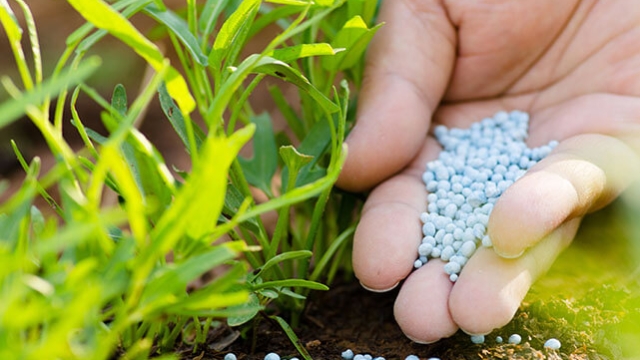Organic soils and fertilizers hold the key to unlocking the secret behind nutrient-rich Earth. In an era where sustainable practices and environmental consciousness reign supreme, organic farming and gardening have gained immense popularity. More and more people are turning towards organic soils and fertilizers for cultivating healthier and more vibrant plants. But what exactly are organic soils and fertilizers, and what sets them apart from their conventional counterparts?
Unlike conventional soils that often rely on synthetic chemicals and genetically modified organisms, organic soils are created through natural processes, harnessing the power of nature itself. These fertile soils are rich in essential nutrients, promoting the growth of strong and resilient plants. Organic fertilizers, on the other hand, are derived from a variety of organic sources such as compost, manure, and plant residues. They work in harmony with the soil, providing a slow release of nutrients while improving soil structure and enhancing microbial activity.
By choosing organic soils and fertilizers, we not only nurture our plants but also protect the delicate balance of our environment. Organic farming practices minimize the use of synthetic pesticides and fertilizers, reducing the risk of harmful chemicals leaching into our water systems and harming wildlife. Additionally, organic soils and fertilizers support the health of our soil microorganisms and beneficial insects, helping to maintain a flourishing ecosystem.
Join us as we embark on a journey to explore the wonders of organic soils and fertilizers. Discover the remarkable benefits they offer, from increased yield and crop quality to improved soil health and sustainability. Unearth the secrets behind nutrient-rich Earth and unlock the potential of organic farming and gardening. It is time to embrace nature’s wisdom and make conscious choices towards a greener and healthier future.
Importance of Organic Soils
Organic soils play a critical role in maintaining the health and fertility of our agricultural lands. These nutrient-rich soils are derived from natural sources and contain a diverse array of organic matter, including decaying plant and animal materials.
One of the key benefits of organic soils is their ability to enhance soil structure. The organic matter in these soils acts like a sponge, helping to improve water retention and soil drainage. This aids in the prevention of soil erosion, as well as ensuring that plants have access to a steady supply of moisture. Moreover, the improved soil structure allows plant roots to penetrate more easily, facilitating nutrient uptake and leading to healthier, more productive crops.
In addition to improving soil structure, organic soils also promote microbial activity. These soils provide a favorable environment for beneficial microorganisms such as bacteria and fungi, which play a crucial role in nutrient cycling. These microorganisms decompose organic matter and release essential nutrients in forms that can be easily absorbed by plants. By fostering this microbial activity, organic soils help to ensure that plants have access to the nutrients they need to grow and thrive.
2. Benefits of Organic Fertilizers
Organic fertilizers offer several advantages for promoting healthy and sustainable plant growth. By harnessing natural materials and processes, these fertilizers provide numerous benefits for both plants and the environment.
Firstly, organic fertilizers contain a wealth of essential nutrients that are gradually released into the soil. This slow release allows plants to access nutrients as-needed, reducing the risk of nutrient imbalances or nutrient burn. Compared to synthetic fertilizers, which can cause spikes in nutrient levels, organic fertilizers provide a more balanced and steady supply of nutrients to support plant growth.
Secondly, the use of organic fertilizers can enhance soil fertility over time. Organic fertilizers nourish the soil by improving its structure and enhancing its ability to hold onto water and nutrients. This leads to healthier soil, which in turn promotes vigorous root development and improves nutrient uptake in plants. Additionally, organic fertilizers encourage the growth of beneficial microorganisms in the soil, which further contribute to its overall health and fertility.
Lastly, organic fertilizers are environmentally friendly. Unlike synthetic fertilizers that may contain harmful chemicals, organic fertilizers are derived from natural sources such as animal manure, compost, and plant residues. This reduces the risk of chemical runoff into water sources, minimizing the negative impact on ecosystems. Furthermore, organic fertilizers help reduce soil erosion and support biodiversity, as they work in harmony with the natural processes of the earth.
In conclusion, organic fertilizers provide numerous benefits for both plants and the environment. Their slow release of nutrients, ability to improve soil fertility, and environmentally friendly nature make them an excellent choice for promoting sustainable and nutrient-rich soil. By opting for organic fertilizers, we can unlock the secrets of nutrient-rich earth and cultivate healthier, more resilient plants.
3. Sustainable Practices for Nutrient-Rich Earth
When it comes to cultivating nutrient-rich earth, sustainable practices play a crucial role. Organic soils and fertilizers offer a natural and environmentally friendly approach to gardening and farming. By adopting these practices, we can ensure the preservation of our planet’s health and productivity for generations to come.
when is a cucumber ripe
One key practice is the use of compost. Composting organic materials such as food waste, leaves, and grass clippings helps create nutrient-rich soil. As the organic matter decomposes, it releases essential minerals and nutrients that plants need for healthy growth. By incorporating compost into the soil, we can enhance its structure, fertility, and water-holding capacity.
Another sustainable practice involves using cover crops. These are plants specifically grown to protect and enrich the soil between main crop seasons. Cover crops capture and store nitrogen, preventing it from leaching away and becoming harmful to the environment. Additionally, they help prevent soil erosion, suppress weeds, and increase soil organic matter. Some common cover crops include legumes like clover and vetch, as well as grasses like rye and oats.
Lastly, rotating crops is an essential practice in maintaining the health of organic soils. Planting different crops in a cyclic manner helps break the cycle of pests and diseases that can build up in the soil. Additionally, diverse crop rotations help replenish nutrients naturally, as different plants have varying nutrient requirements. This practice minimizes the need for synthetic fertilizers while promoting a balanced and sustainable ecosystem.

By implementing sustainable practices such as composting, utilizing cover crops, and rotating crops, we can unlock the secrets of nutrient-rich earth. These organic soil management techniques not only promote healthy plant growth but also reduce dependency on synthetic chemicals, conserve water, and safeguard the long-term viability of our environment.
